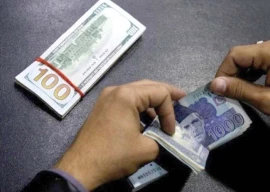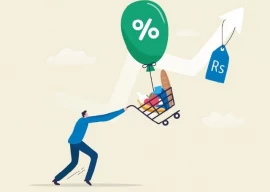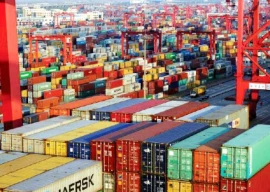
The coffee drinking culture in Pakistan is expanding, driven by shifting consumer preferences, particularly among the youth. However, despite this potential, high import duties pose a significant barrier to market expansion, unlike the tea sector, which has to pay low duties.
High duties and tariffs, as per experts associated with coffee business, need to be rationalised. It is important to open an additional revenue stream both in terms of tax collection and export proceeds.
Currently, coffee imports face disproportionately high duties, which go up to 53% on finished products and 28% on bulk (raw material) purchase. Regulatory duty contributes 40% and 15%, respectively, to this overall duty structure.
On the other hand, importers of tea, the most consumed commodity in the country, pay duties of only 13%, with zero regulatory duty.
This, according to the stakeholders, reflects a huge difference for coffee manufacturing and branding companies, as it is hindering market access and the formal business growth.
“High duties create a parallel market for smuggled coffee brands, which undermines the formal business that pays taxes and complies with regulations,” remarked an industry stakeholder while talking to The Express Tribune.
“This is a violation of SRO 237, which entails specific import and labeling standards for processed food products.”
In addition, high tariffs should also be eliminated as per guidelines of the National Tariff Commission (NTC). It says tariffs on raw material, intermediate and capital goods will be gradually reduced and the additional customs duty and regulatory duty will also be gradually slashed.
The difference between rates of tariffs on the commercial importers and industrial users of raw material, intermediate and capital goods will be eliminated to avoid misuse and provide small and medium enterprises access to essential materials, NTC says.
“Rationalising duties, especially the regulatory duty, by at least 10% can spur local manufacturing and branding, potentially boosting exports and attracting investment from multinational companies (MNCs),” said the expert.
Rationalising the tariff structure for bulk imports would be the key for the companies eager to make new investment in coffee business, which would slash coffee prices and increase export revenues, which currently stand at only $0.7 million, he added.
“Customs department still labels coffee as a luxury item, as a result of which a high tariff is imposed on its import,” elaborated Syed Moyyed Abbas, Founder of Bean Machine, a Pakistani coffee chain.
“We are witnessing a 20% growth in coffee business but this is not limited to the spread of coffee chains. Households are also diverting quickly towards the coffee culture, especially instant coffee, which is encouraging the overall industry,” he said.
However, Abbas underlined the need for taking policy measures to tap the potential of the commodity, which is widely consumed around the world.
“India is the fourth largest grower of Robusta coffee, Pakistan too has similar climatic conditions, but we do not grow coffee beans, since it is a new thing which takes at least five years before a plant starts giving fruit,” he said.
He foresaw that some MNC could start growing coffee beans in Pakistan but for that the commodity should be excluded from the list of luxury products with a fair tariff policy.
Published in The Express Tribune, June 1st, 2024.
Like Business on Facebook, follow @TribuneBiz on Twitter to stay informed and join in the conversation.

1728297472-0/Fousey-(1)1728297472-0-405x300.webp)

1730806672-0/diddy-(37)1730806672-0-165x106.webp)
1731748155-0/BeFunky-collage-(8)1731748155-0-165x106.webp)
















COMMENTS (2)
Comments are moderated and generally will be posted if they are on-topic and not abusive.
For more information, please see our Comments FAQ